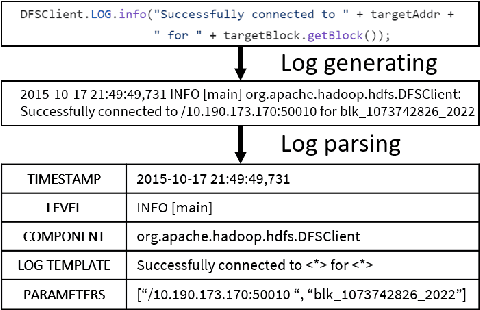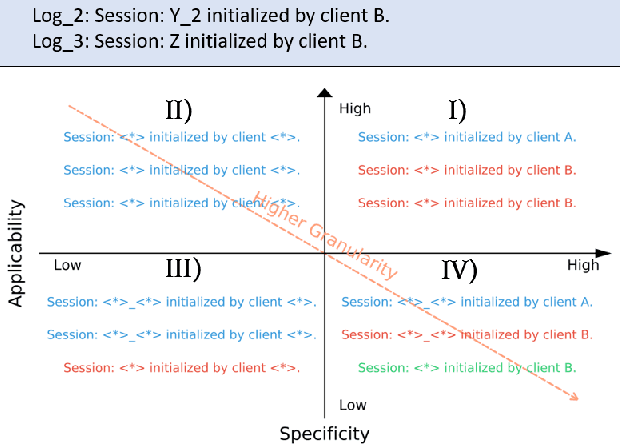Dengyao Mo
LogParser-LLM: Advancing Efficient Log Parsing with Large Language Models
Aug 25, 2024



Abstract:Logs are ubiquitous digital footprints, playing an indispensable role in system diagnostics, security analysis, and performance optimization. The extraction of actionable insights from logs is critically dependent on the log parsing process, which converts raw logs into structured formats for downstream analysis. Yet, the complexities of contemporary systems and the dynamic nature of logs pose significant challenges to existing automatic parsing techniques. The emergence of Large Language Models (LLM) offers new horizons. With their expansive knowledge and contextual prowess, LLMs have been transformative across diverse applications. Building on this, we introduce LogParser-LLM, a novel log parser integrated with LLM capabilities. This union seamlessly blends semantic insights with statistical nuances, obviating the need for hyper-parameter tuning and labeled training data, while ensuring rapid adaptability through online parsing. Further deepening our exploration, we address the intricate challenge of parsing granularity, proposing a new metric and integrating human interactions to allow users to calibrate granularity to their specific needs. Our method's efficacy is empirically demonstrated through evaluations on the Loghub-2k and the large-scale LogPub benchmark. In evaluations on the LogPub benchmark, involving an average of 3.6 million logs per dataset across 14 datasets, our LogParser-LLM requires only 272.5 LLM invocations on average, achieving a 90.6% F1 score for grouping accuracy and an 81.1% for parsing accuracy. These results demonstrate the method's high efficiency and accuracy, outperforming current state-of-the-art log parsers, including pattern-based, neural network-based, and existing LLM-enhanced approaches.
 Add to Chrome
Add to Chrome Add to Firefox
Add to Firefox Add to Edge
Add to Edge